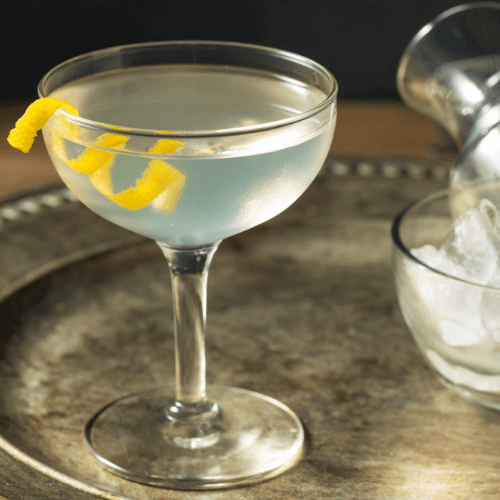Facebook Print Email WhatsApp Table of Contents The Picon Punch traces its roots to the Basque immigrants who settled in...

The Martini is an iconic cocktail, known for its timeless appeal and classic sophistication. Yet, the world of mixology is never static, constantly evolving to cater to diverse tastes and preferences. One such evolution is the 50/50 Martini, a delightful twist on the classic Martini.
Before delving into this cocktail, it’s essential to appreciate the classic Martini, a drink renowned for its simplicity and elegance. Typically, a classic Martini consists of gin, and dry vermouth, and is garnished with a lemon twist or olive. It’s a drink that exudes sophistication and has been a favorite among cocktail enthusiasts for generations.
The 50/50 Martini, as the name suggests, represents a 50/50 ratio of two primary ingredients: gin and dry vermouth. This shift in the traditional Martini formula is the key distinction that sets this cocktail apart. In the world of cocktails, slight variations in ratios and ingredients can lead to remarkable differences in taste and experience. The 50/50 Martini embraces this philosophy, resulting in a unique and delicious twist on a classic.
The 50/50 Martini, like many cocktails, has a somewhat mysterious origin, with no single creation story that can be definitively attributed to it. However, it is widely regarded as a natural evolution of the classic Martini. The shift towards a balanced ratio of gin and vermouth was likely influenced by a growing appreciation for the subtler flavors of vermouth and a desire to create a more approachable cocktail for a wider audience. This Martini variation, with its blend of the two main ingredients, offers a milder and less spirit-forward profile compared to the classic Martini.
The key difference between the 50/50 Martini and its classic counterpart is the ratio of gin to vermouth. In the classic Martini, the gin typically takes center stage, with just a hint of dry vermouth for balance. This results in a drier, more gin-forward flavor profile. In contrast, this cocktail’s equal parts gin and vermouth create a milder, more balanced taste. This balance allows the botanicals of the gin and the herbal notes of the vermouth to shine in equal measure, providing a nuanced and approachable drinking experience.
Another subtle but noteworthy distinction is the texture of the two cocktails. The 50-50 Martini is often described as slightly smoother and more velvety due to the increased presence of vermouth. This quality makes it an excellent choice for those who appreciate a less aggressive and more delicate cocktail.
While the Martini is traditionally made with gin, it is worth noting that vodka can be used as a substitute for gin in both the classic and this variation. Vodka’s neutral flavor allows the vermouth to take center stage, resulting in a clean and crisp cocktail. The 50/50 ratio can still be applied when using vodka, creating a “Vodka 50/50 Martini.”
For those who prefer a less botanical and more neutral base spirit, a Vodka 50-50 Martini offers a refreshing take on the traditional Martini. It is also an excellent option for individuals who may not be fond of the juniper notes found in gin.
45 ml gin
45 ml dry vermouth
1 dash of orange bitters
Ice
Garnish: lemon twist

Add the gin, dry vermouth, and orange bitters into a mixing glass.
Add ice and stir, until chilled.
Strain the mix into a martini glass.
Garnish with a lemon twist.
Facebook Print Email WhatsApp Table of Contents The Picon Punch traces its roots to the Basque immigrants who settled in...
Facebook Print Email WhatsApp Published: 04/03/24 Table of Contents The Night Tripper is a new cocktail in the mixology world...
Facebook Print Email WhatsApp Table of Contents The Horse’s Neck cocktail emerged during a time when non-alcoholic beverages were gaining...
Facebook Print Email WhatsApp Updated 04/04/24 Table of Contents When you hear the name “Sex on the Beach” it’s hard...
MixDrinkiPedia.com is a participant in the Amazon.com Services LLC Associates Program. As an Amazon Associate we earn from qualifying purchases. Amazon and the Amazon logo are trademarks of Amazon.com, Inc. or its affiliates.